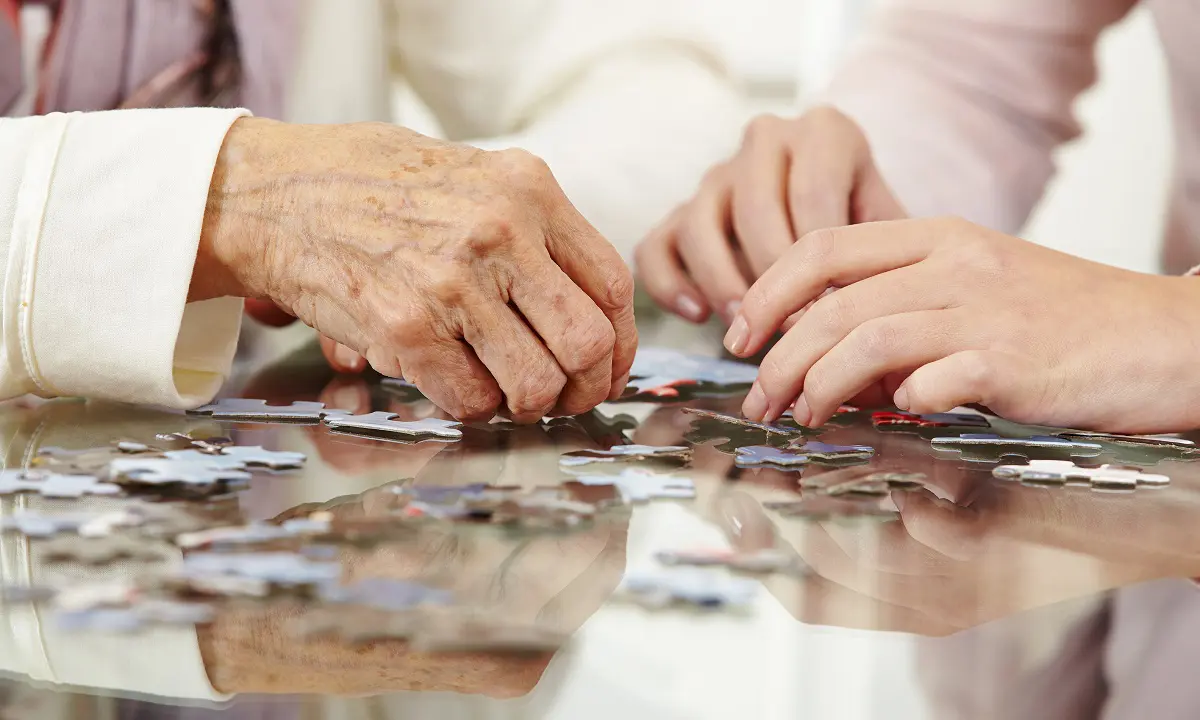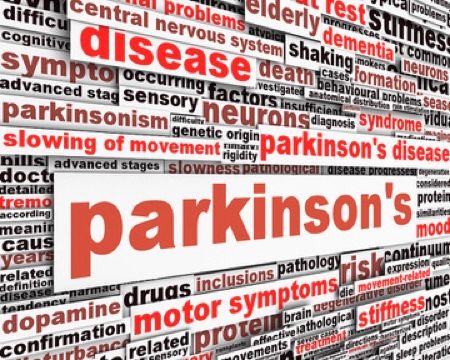What is Normal Age-related Cognitive Decline?

Understanding Normal Age-Related Cognitive Decline
As we age, our cognitive abilities naturally decline. This is a normal part of growing older, and while it may be frustrating, it is important to understand the issue in order to manage it and maximize quality of life. This guide will provide an introduction to normal age-related cognitive decline, discuss its signs and symptoms, and offer resources for further information and support.
Normal age-related cognitive decline refers to the natural reduction in memory, processing speed, and other cognitive functions that comes with growing older. While this decline can start as early as age 40, it typically becomes more noticeable in people over 60 years old.
It is important to note that age-related cognitive decline should not be confused with dementia or other serious medical ailments. Mild age-related cognitive decline can cause frustration or confusion, but is generally not serious enough to interfere with daily life.
This guide will provide information about the physical and mental changes associated with normal age-related cognitive decline, as well as how to diagnose and treat the issue, potential causes and risk factors, prevention methods, related conditions, and coping strategies.
Signs of Normal Age-Related Cognitive Decline
Normal age-related cognitive decline presents itself in various ways. Many people find it harder to remember names or dates, or to recall facts and vocabulary that they previously knew. Others may have difficulty keeping track of time and organizing their lives. Additionally, multitasking and problem-solving can become more challenging as age-related cognitive decline sets in.
Common Mental Changes
As we age, we may experience changes in our mental abilities. Normal age-related cognitive decline can include difficulty recalling vocabulary, trouble concentrating for long periods of time, and having difficulties remembering recent events or names. It is important to be aware of these changes to help diagnose and manage age-related cognitive decline.
Some of the common mental changes associated with age-related cognitive decline include:
- Difficulty remembering names and faces.
- Trouble focusing on tasks for long periods of time.
- Frequent pauses while speaking or difficultly finding the right words.
- Difficulty navigating to familiar places.
- Forgetting recent events.
- Trouble understanding new concepts.
Memory Loss
Memory loss is a common symptom of age-related cognitive decline. It can manifest in different ways, ranging from difficulty recalling specific facts or experiences to having trouble remembering details from recent events or conversations. Sometimes people with age-related cognitive decline forget names, dates, or even their own address. If left untreated, memory loss can get worse over time.
It can be helpful to find strategies that make it easier to remember important information, such as writing down reminders or using a calendar or organizer. Family members and caregivers can also help by providing reminders and offering emotional support. Lastly, it’s important to speak with a healthcare professional if you are concerned about your own memory loss or that of a loved one.
Diagnosis & Screening
In order for doctors to diagnose and screen for age-related cognitive decline, they will need to ask the patient a series of questions and perform specific tests. The two main tools used for this type of screening are the Mini-Mental State Examination (MMSE) and the IQCODE (Informant Questionnaire on Cognitive Decline in the Elderly).
The MMSE is a 30-point questionnaire designed to assess various aspects of cognition, including language, attention, memory, and orientation. This test is used to identify individuals who may be at risk of developing dementia or other forms of cognitive decline.
The IQCODE is a 16-item questionnaire that is completed by someone who knows the person being tested. It is intended to evaluate an individual's cognitive functioning over the past ten years. It assesses memory, language, ability to handle daily activities, and orientation to time and place.
These screening tests can help doctors to identify people who may be experiencing cognitive decline due to aging. However, these tests should only be used as a starting point and should not be the sole basis for diagnosis. Ultimately, a more thorough evaluation by a doctor is necessary in order to make an accurate diagnosis.
Treatments for Age-Related Cognitive Decline
Age-related cognitive decline can have an impact on day-to-day life, but there are treatments available to help manage the condition. Treatments focus on reducing symptoms and improving overall functioning.
Some of the treatments available for age-related cognitive decline include:
- Medications - Doctor may prescribe medications to treat memory loss and other symptoms associated with age-related cognitive decline.
- Lifestyle modifications - Making small changes to your lifestyle (such as a healthy diet, regular exercise, social activities, and staying mentally active) can help improve cognitive functioning.
- Cognitive rehabilitation - Cognitive rehabilitation is a form of therapy that can help people regain skills and strategies that have been impacted by age-related cognitive decline.
It's important to discuss treatment options with your doctor in order to find the approach that's right for you.
Potential Causes and Risk Factors for Age-Related Cognitive Decline
Normal age-related cognitive decline can be caused by a number of factors, some of which are unknown. However, there are certain things that increase the risk of developing age-related cognitive decline, including genetics and brain injury.
Genetics: Research suggests that certain genes may be linked to age-related cognitive decline. These genes are thought to affect the body's ability to produce proteins that protect neurons in the brain. Studies have also found a link between certain gene mutations and an increased risk of developing Alzheimer's disease, a form of age-related cognitive decline.
Brain Injury: Head trauma, such as a concussion, can lead to changes in the brain that may lead to age-related cognitive decline. Brain injuries can cause damage to neurons and other cells in the brain, making it harder for the brain to process information. Age is also an important factor, as people who experience head trauma at an older age may be more likely to develop age-related cognitive decline.
Other potential causes and risk factors for age-related cognitive decline include lifestyle choices such as smoking and lack of physical activity; poor diet; chronic medical conditions like diabetes; excessive alcohol consumption; social isolation; and depression. Although these factors do not guarantee that someone will develop age-related cognitive decline, they can increase the chances of it occurring.
Prevention
Age-related cognitive decline is natural and can't be completely prevented. However, there are certain steps you can take to reduce your risk and lower the likelihood of developing severe symptoms. Some potential preventive measures for age-related cognitive decline include:
- Eating a healthy balanced diet that includes a variety of whole foods.
- Staying physically active with a combination of aerobic exercise and strength training.
- Stimulate your brain regularly with challenging mental activities or puzzles.
- Maintaining regular social contact with friends and family.
- Avoiding smoking and excessive alcohol consumption.
- Managing stress levels with relaxation techniques such as yoga, tai chi, or mindfulness meditation.
By following a healthy lifestyle and staying socially engaged, you may be able to ward off some of the symptoms associated with age-related cognitive decline.
Related Conditions
Age-related cognitive decline is sometimes confused with, or caused by, other conditions. It's important to understand the differences between age-related cognitive decline and other conditions so that you can get the right diagnosis and treatment plan.
One of the most common conditions related to age-related cognitive decline is Alzheimer’s Disease. This condition causes a significant decline in mental abilities such as memory and decision-making, usually beginning around the age of 60 or 70. In addition to memory loss and confusion, people with Alzheimer’s Disease may also experience changes in behavior, personality, and physical abilities.
Other conditions that are sometimes confused with age-related cognitive decline include dementia, depression, stroke, and Parkinson’s Disease. Dementia often involves memory loss but is more severe than age-related cognitive decline, and does not necessarily involve changes in behavior or physical abilities. Depression can also cause changes in cognition but usually involves a feeling of sadness or despair. Stroke is a medical emergency that involves impaired movement or speech, and Parkinson’s Disease is a neurological disorder that can cause tremors and slow movements.
Coping Strategies for Age-Related Cognitive Decline
Caring for a loved one with age-related cognitive decline can be a difficult and emotionally taxing process. It’s important for family members and caregivers to have the right coping strategies in place to help their loved one manage the condition. Here are some tips on how family members and caregivers can cope with age-related cognitive decline:
- Stay positive and try to find the humor and joy in life.
- Communicate clearly, using simple language and repeating yourself as needed.
- Spend quality time with your loved one and encourage them to participate in social activities that they enjoy.
- Create a supportive environment by staying patient, understanding, and listening to their concerns.
- Allow your loved one to take risks and make mistakes, but provide gentle guidance when necessary.
- Encourage self-care and a healthy lifestyle. This will help improve overall wellbeing.
- Set realistic goals and expectations, and celebrate small successes.
- Educate yourself about the condition and stay informed about news and treatments related to age-related cognitive decline.
Caring for a loved one with age-related cognitive decline can be challenging, but it is also rewarding. Having the right coping strategies in place can help make the journey easier for both you and your loved one.
You might also like this article:








